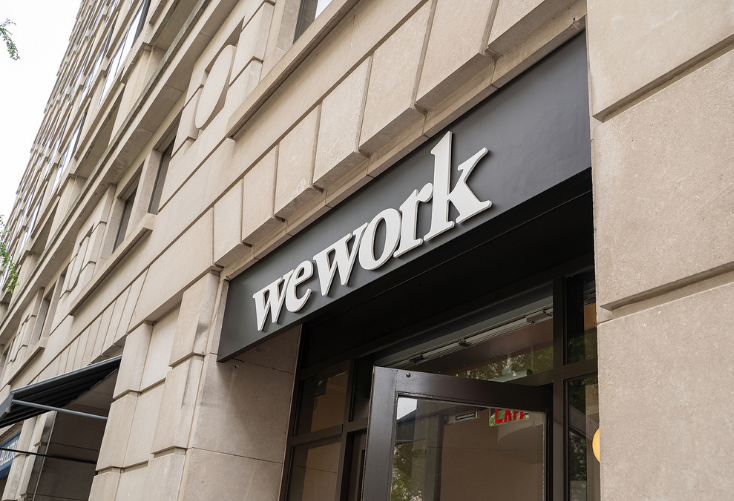Hand selected flexible workspace news from the most reliable sources to keep you ahead of the pack. We find all the latest news, so you don’t have to. Morning and afternoon updates. Stay in the know.
Here’s what you need to know today:
- Where Can Coworking Go From Here? NEW
- The Office Group Anticipates Growth In Demand NEW
- The Office Isn’t Dead, It Needs To Be Closer To Home NEW
- WeWork Sells Off Majority Stake In Chinese Entity
- Google To Try Hybrid Work Arrangements
- How Asia Pacific’s Offices Are Adapting
Where Can Coworking Go From Here?
The coworking industry has gone from a niche shared office filled with entrepreneurs to an in-demand workplace that is home to millions of workers from all corners of the workforce. Even as major household names like WeWork struggled to stay afloat, other operators made up for the company’s challenges.
Then COVID-19 struck, and the constant hum of collaboration between coworking members fell quiet. So how can an industry that has based its core business on sharing office amenities fit in a post-pandemic society?
While some have argued that coworking is one of the most high-risk segments of the office market, others see a world of opportunity for these flexible spaces. For instance, Joe Brady, CEO Americas for The Instant Group, says that businesses may look into cutting down on their own real estate footprint and adopt a hub-and-spoke model, where coworking spaces could serve as spokes.
“With this idea of the hub and spoke, if you’re reducing expensive real estate in the prime core business districts, the urban cores, and you’re moving out to first string suburban, you’re going to see some, some cost savings,” said Brady.
Doing so allows coworking operators to bring in a wider range of members, while also servicing suburban areas rather than solely big cities.

The Office Group Anticipates Growth In Demand
The Office Group has revealed that it has solidified multiple deals in anticipation of growing demand for flexible offices from large corporations.
For instance, BP recently signed a three-year lease with the company to take up 50,000 square feet of space in London’s Fitzrovia district. The deal provides BP with 700 desk spaces that can be used by 1,000 workers, as well as giving them access to meeting rooms and lounges.
Just this week, the UK government said that people should continue to work from home if possible after many returned to the office back in August.
Now, companies are looking for flexible offices in order to continue having physical workspaces in London, without the risk of taking on a long-term lease.
“This will combine the positive sides of working from home with innovative office space to give colleagues the best of both worlds,” said Olly Olsen, co-founder of The Office Group.

The Office Isn’t Dead, It Needs To Be Closer To Home
Research from IWG has revealed that commuting is the biggest con of returning to the physical workspace for Brits. In fact, only 8% of respondents said they were prepared to travel over an hour to get to the office.
Additionally 57% said they want an office that is closer to their homes, with 77% saying that having a closer workspace is essential for their next job move.
IWG also reported a 22% increase in sales between June and August this year, which has been particularly fueled by a boost in demand for offices in the suburbs. The largest increase in demand in the UK has been in Plymouth, which saw a 114% increase. However, sales declined by 40% during the same period of time in London, indicating that workers are still hesitant to travel to the central hub.
“The changes we’ve experienced in how and where we work are here to stay. As we have seen during the pandemic, people have enjoyed working from home and have tasted the relative luxury of not having to commute,” said Mark Dixon, CEO of IWG. “This is unsurprising given a vast array of sources, from the Office for National Statistics to Princeton University, tell us continually that commuting is the least favourite part of the working day for many.”
Moving forward, employees would prefer to work three days a week in the office and a staggering 46% said they would look into leaving their jobs if they were asked to come in five days a week again.

WeWork Sells Off Majority Stake In Chinese Entity
WeWork China has locked in a $200 million investment from Trustbridge Partners, which first backed the company in a Series B round in 2018. This latest financing officially makes the Shanghai-based equity firm the controlling shareholder of WeWork’s Chinese entity.
According to a spokesperson, WeWork China will continue to be in close cooperation with WeWork’s global headquarters moving forward to “ensure the consistency of the WeWork brand and satisfaction of global members and employees.”
The company has laid off employees as part of the sale, and many other changes are anticipated in the coming months. Additionally, Michael Jiang, operating partner at Trustbridge Partners, will take over as CEO.
Since WeWork’s arrival, over 100 locations have opened across 12 cities in China, including some from its acquisition of competitor Naked Hub.
Trustbridge Partners will conduct a localized makeover including decision-making and management strategies, as well as partnerships with local communities and enterprises.

Google To Try Hybrid Work Arrangements
According to a recent survey of Google employees, 62% of respondents revealed that they want to return to the office, just not every day. Additionally, 10% of respondents said they did not want to come into the office at all, down from the 20% in May.
These findings have forced the company to reevaluate their long-term work policies, which has led it to consider a hybrid work arrangement.
“I see the future as being more flexible,” said Sundar Pichai, CEO of Alphabet. “We firmly believe that in-person, being together, having a sense of community is super important when you have to solve hard problems and create something new so we don’t see that changing. But we do think we need to create more flexibility and more hybrid models.”
This news comes after the company revealed it would allow its employees to work from home through July 2021 as the world continues to work through the pandemic. Although this arrangement has been convenient for some, other employees expressed that they missed in-office benefits, including in-person socialization and collaboration with colleagues.

How Asia Pacific’s Offices Are Adapting
The pandemic’s origins in Asia-Pacific has allowed the area to undergo an office transformation longer than any other region in the world. As governments begin lifting lockdowns and opening up their economies, office owners are considering how to continue bringing in users, while keeping them safe.
Now, entering the office involves going through temperature screenings, using elevators that are activated through a smartphone app or foot pedal system, improved air conditioning systems, as well as thermal heat maps to keep track of distancing between occupants. Additionally, disinfection fogging and ultraviolet light will be utilized to keep areas thoroughly sanitized.
The use of artificial intelligence and PropTech is expected to completely shape what services and tools businesses invest in, as well as how they continue operating.
“We are going to see more PropTech solutions combine with traditional property management to provide better and healthier building environments,’ said Daniel Yeo, head of research at JLL China. “Offices will be highly digitised. The internet of things, artificial intelligence and big data will redefine the workplace experience.”
For instance, Singapore-based office developer CapitaLand is piloting disinfection technologies, touchless technology including facial recognition software and more across various business parks and office buildings to support tenants who are preparing to return to the workplace.
Additionally, some experts believe that even when employees return to the workplace, it will only be for a portion of the work week to attend meetings or submit projects. This trend will likely lead to an increased use of satellite offices, where businesses can host employees and de-densify their main headquarters.



 Dr. Gleb Tsipursky – The Office Whisperer
Dr. Gleb Tsipursky – The Office Whisperer Nirit Cohen – WorkFutures
Nirit Cohen – WorkFutures Angela Howard – Culture Expert
Angela Howard – Culture Expert Drew Jones – Design & Innovation
Drew Jones – Design & Innovation Jonathan Price – CRE & Flex Expert
Jonathan Price – CRE & Flex Expert












